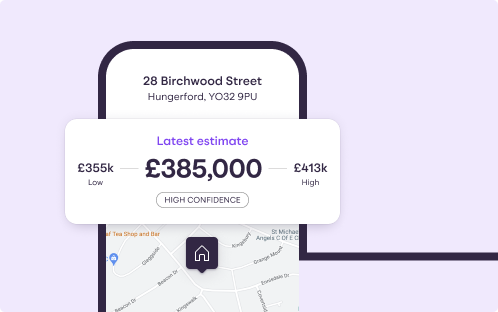Looking to renovate your home? You’re not alone.
The pandemic caused a 25% surge in planning applications as the nation reassessed their living arrangements.
You may be wanting to add value to your property, or need extra space for your growing family.
Whatever your motivations, one of the biggest decisions you’ll need to make is how to pay for the improvements.
Remortgaging is one of the possible options available. Here’s how it works.
Save money with Mojo Mortgages
Allow award-winning Mojo to show you the best rates available to you. A whole-of-market broker, Mojo work with over 70 lenders. And they won't charge you a penny for their services.

Can I take equity out of my house to renovate?
Remortgaging enables you to release some of the equity tied up in your home.
In simple terms, that means switching to a new mortgage deal on your property, either with your current lender or a new one.
If you’ve owned your home for a while, your chunk of equity may well have increased, which is likely to strengthen your position with a lender.
It’s a good idea to remortgage when your current mortgage deal is coming to an end, otherwise you could face hefty costs if you leave it early, such as early repayment charges and exit fees.
You’ll also typically pay fees when you agree a new mortgage. So make sure you study the small print first and give yourself plenty of time to look at the various options available.
A good mortgage broker can advise you on the best deals on the market. They often have access to products that aren't necessarily listed on the 'high street' and can find the best ones to suit your particular needs.
Is it worth using a mortgage broker?
My Home: track your home's value
Discover how much your home could be worth, track its changing value over time and find out what homes in your area have sold for.

What do lenders check when you remortgage?
As when you first took out your mortgage, lenders will look at a range of factors to decide what deal they can offer you when you remortgage.
They include:
How healthy your finances are
Your age
Job status
Income
Debts
Credit history
Your mortgage payment history
The value of your home and how much equity you have in it
Lenders will also check that you’ll be able to afford your new mortgage repayments now and further down the line.
This is known as 'stress testing' and is designed to protect you from defaulting on your mortgage payments in future.
For example right now, mortgage rates are around 5% for a fixed-rate mortgage.
That means lenders are currently checking that you could still repay the loan if they were to rise to 8%.
Thankfully, this situation is now looking unlikely as stability is returning to the financial markets.
Lenders will also be keen to understand your renovation plans and the expected costs.
What are the advantages and disadvantages of remortgaging?
This will really depend on your personal circumstances.
Let's take a look at the pros and cons.
The advantages of remortgaging
You can spread the payments over a long period of time, adding a relatively small amount to your monthly mortgage repayments while undertaking expensive home improvement works
You can choose to extend the length of your current mortgage deal, keeping your monthly repayments roughly the same
You could get a better mortgage deal than the one you’re currently on
By agreeing a new fixed-rate deal, you get certainty over your mortgage repayments for a set period of time
It could be a good move if your current mortgage deal is due to end soon
The disadvantages of remortgaging
You’re likely to pay more in mortgage interest when you borrow more, whether you extend the length of your current mortgage or pay the loan over the same time as your existing deal
If you leave your existing mortgage deal before it ends, you could be hit with hefty charges
You may not be able to lock in a better deal than the one you’re currently on
It may take you longer to pay back your mortgage
What should I consider before remortgaging?
Increasing the amount of money you borrow isn't a decision to be taken lightly.
A reputable mortgage broker and/or a financial advisor can offer expert advice on the implications.
If house prices fall significantly, you could run the risk of getting into negative equity.
This is when your home is worth less than the mortgage you’re paying on it.
It’s also worth tuning in to the types of home improvements that will add the most value, particularly if you’re planning to sell your home in the future.
Which home improvements add the most value to your home?
And check out house prices in your area to gauge how much premium homes command if they’ve had certain renovations done, such as a loft conversion, extension or the addition of a home office.
Find out house prices in my area
Can I borrow more on my existing mortgage for renovations?
Another option is to extend your mortgage by asking your existing lender if they’ll consider lending you more money.
As with any loan, your lender will run through the normal checks and balances outlined above first.
If they do agree to lend more, the interest rate on the extra slug of finance may well be different to the interest rate on your existing mortgage.
It’s important to consider all the possibilities and plump for the one that best suits your particular needs.
This is a guide only. It’s important to seek independent financial advice based on your personal circumstances.

